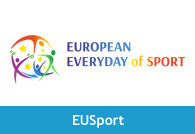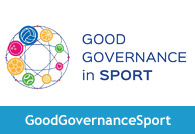NEWS

BSDA IS A PARTNER IN PROJECT HEPA


18.02.2021
The overall objective of this project is to encourage participation in recreational physical activity for seniors (persons age 65+) in project partner countries by developing new recreational sport programmes suited for 3 types of most common health conditions (back pain, cardiovascular disease and osteoporosis) thereby supporting the implementation of the EU Physical Activity Guidelines. The duration of the project is 24 months, and it involves 6 partner organizations from five European countries - Bulgaria, Croatia, Portugal, Slovenia and Serbia.
The health benefits of physical activity (PA) for older adults have been well established in the scientific literature. Numerous outcomes have been studied to document associations with PA, including reduced prevalence of common chronic conditions (eg, cardiovascular disease, diabetes, hypertension), improved mental health (eg, depression, stress), quality of life, increased physical function, decreased cognitive decline (eg, dementia, Alzheimer's disease) and reduced mortality rates.
Physical activity is at the core of health and well-being. The benefits of physical activity – including reduced risk of no communicable diseases and lower levels of stress, anxiety, and depression – are well known. The social benefits of physical activity participation are often particularly important to older people. However, health promotion messages often target children and young people, with less focus on the importance of physical activity for people aged 60 years and over.
The World Health Organization (WHO) recommends that adults (including elderly) engage in at least 150 min of moderate-intensity aerobic physical activity each week. On EU level, the report, unveiled by Commissioner Navracsics in Sofia during the annual EU Sport Forum shows that levels of participation have not changed substantially since the previous Eurobarometer survey in 2014. In fact, the proportion of those who say they never exercise or play sport has slightly increased from 42% to 46% Europe-wide, and this is a continuation of a gradual trend since 2009. 15% of Europeans do not walk for 10 minutes at a time at all in a weekly period, and 12% sit for more than 8.5 hours per day. In addition, another study confirms this trend pointing out that one third of adults in Europe are insufficiently active indicating that more than 50% of adults are overweight in the majority of European countries, thus further contributing to the proliferation of no communicable diseases.
THE SPECIFIC OBJECTIVES OF HEPA PROJECT ARE:
1. Raising awareness regarding benefits of participation in recreational PA for seniors (persons age 65+) in terms of social inclusion and health-enhancing;
2. Analysing current HEPA guidelines in project countries and developing new Recommendations for implementing HEPA for seniors with emphasis on new developed exercises aimed at resolving back pain and on exercises adapted to persons with cardiovascular disease and osteoporosis using multisector approach;
3. Strengthening the capacity of kinesiologists and trainers through non-formal education on new methodology for conducting recreational sport activities for seniors in project countries;
4. Strengthening the capacity of general practitioners on benefits of participation of seniors in recreational sport activities;
5. Creating a network of main stakeholders (project partner organizations, kinesiologists and general practitioners), national and local sports committees, and units of local (self) government and health institutions to exchange examples of good practice regarding the inclusion of seniors in recreational sport activities.
THE OBJECTIVES OF HEPA PROJECT ARE:
• Assuring preconditions for new Educational Modules and Recommendations development;
• Analysis of existing documents;
• Involvement of key stakeholders;
• Development of Educational Modules Manual for sport for all coaches, fitness professionals (kinesiologists, trainers) and general practitioners;
• Capacity building and Sport pilot program for seniors.
THE EXPECTED IMPACT OF THE HEPA PROJECT:
• minimum of 50 sport for all coaches and fitness professionals (kinesiologists, trainers) (10 per project country) will be educated;
• minimum 50 general practitioners will be educated;
• 5 round tables organized with decision makers and relevant stakeholders;
• at least 10 educated sport for all coaches and fitness professionals (kinesiologists, trainers) per project country will participate in the practical part of education, implementation of Sport pilot program for seniors;
• organized Sport pilot programme for seniors in duration for 4 months for 30 seniors (older people 65+) per project country.
The project “HEPA“ (Health Enhancing Physical Activity) - Health and Fitness Assessment for Seniors is co-funded by the Erasmus + program of the European Union.
Physical activity is at the core of health and well-being. The benefits of physical activity – including reduced risk of no communicable diseases and lower levels of stress, anxiety, and depression – are well known. The social benefits of physical activity participation are often particularly important to older people. However, health promotion messages often target children and young people, with less focus on the importance of physical activity for people aged 60 years and over.
The World Health Organization (WHO) recommends that adults (including elderly) engage in at least 150 min of moderate-intensity aerobic physical activity each week. On EU level, the report, unveiled by Commissioner Navracsics in Sofia during the annual EU Sport Forum shows that levels of participation have not changed substantially since the previous Eurobarometer survey in 2014. In fact, the proportion of those who say they never exercise or play sport has slightly increased from 42% to 46% Europe-wide, and this is a continuation of a gradual trend since 2009. 15% of Europeans do not walk for 10 minutes at a time at all in a weekly period, and 12% sit for more than 8.5 hours per day. In addition, another study confirms this trend pointing out that one third of adults in Europe are insufficiently active indicating that more than 50% of adults are overweight in the majority of European countries, thus further contributing to the proliferation of no communicable diseases.
THE SPECIFIC OBJECTIVES OF HEPA PROJECT ARE:
1. Raising awareness regarding benefits of participation in recreational PA for seniors (persons age 65+) in terms of social inclusion and health-enhancing;
2. Analysing current HEPA guidelines in project countries and developing new Recommendations for implementing HEPA for seniors with emphasis on new developed exercises aimed at resolving back pain and on exercises adapted to persons with cardiovascular disease and osteoporosis using multisector approach;
3. Strengthening the capacity of kinesiologists and trainers through non-formal education on new methodology for conducting recreational sport activities for seniors in project countries;
4. Strengthening the capacity of general practitioners on benefits of participation of seniors in recreational sport activities;
5. Creating a network of main stakeholders (project partner organizations, kinesiologists and general practitioners), national and local sports committees, and units of local (self) government and health institutions to exchange examples of good practice regarding the inclusion of seniors in recreational sport activities.
THE OBJECTIVES OF HEPA PROJECT ARE:
• Assuring preconditions for new Educational Modules and Recommendations development;
• Analysis of existing documents;
• Involvement of key stakeholders;
• Development of Educational Modules Manual for sport for all coaches, fitness professionals (kinesiologists, trainers) and general practitioners;
• Capacity building and Sport pilot program for seniors.
THE EXPECTED IMPACT OF THE HEPA PROJECT:
• minimum of 50 sport for all coaches and fitness professionals (kinesiologists, trainers) (10 per project country) will be educated;
• minimum 50 general practitioners will be educated;
• 5 round tables organized with decision makers and relevant stakeholders;
• at least 10 educated sport for all coaches and fitness professionals (kinesiologists, trainers) per project country will participate in the practical part of education, implementation of Sport pilot program for seniors;
• organized Sport pilot programme for seniors in duration for 4 months for 30 seniors (older people 65+) per project country.
The project “HEPA“ (Health Enhancing Physical Activity) - Health and Fitness Assessment for Seniors is co-funded by the Erasmus + program of the European Union.

 Български
Български
































